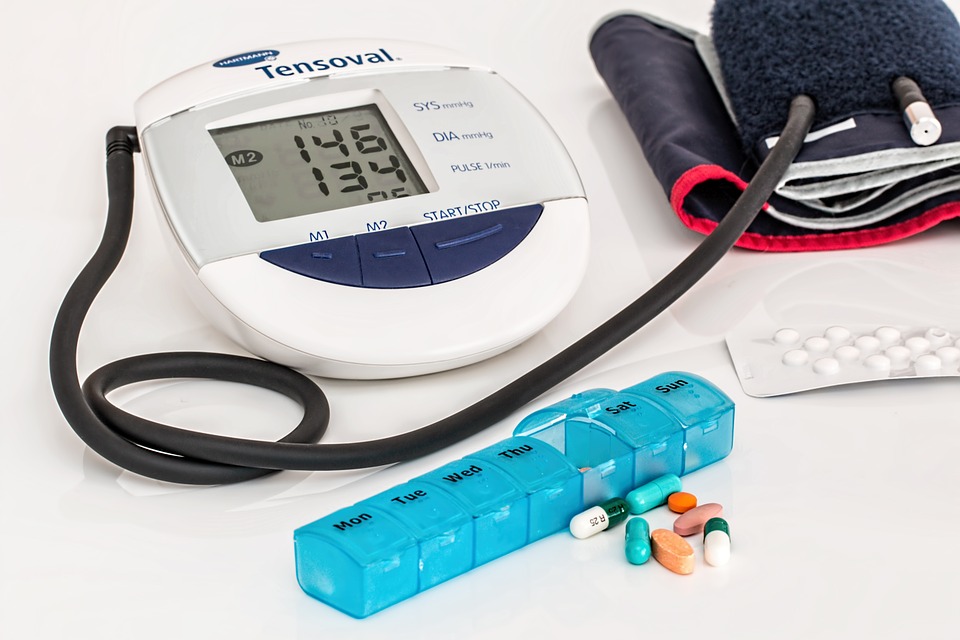Diabetes

Diabetes
Diabetes is a condition where your pancreas is no longer producing Insulin or your body does not respond to insulin well which is responsible for transporting sugar from your blood into your cells. The purpose of moving sugar into your cells is to use it for energy for your cells or to store it for later use.
So if you have high levels of sugar known as hyperglycemia Insulin will help reduce the high levels of sugars by transporting the sugars from your bloodstream to your muscles that can burn the energy from the sugars or to your liver or fat cells that can store the sugar if you are not using it.
Because diabetic patients either cannot produce insulin or are not sensitive to the effects of insulin they continue to have high blood sugars.
Having high blood sugars is associated with myriad of problems including high blood pressure, nerve damage or neuropathy, Kidney damage, Eye damage, Foot Damage and Alzheimer’s to name a few complications. However, the good news is that high blood glucose can be controlled for patients. By being diligent with lifestyle, exercise and use of medications we can prevent many of these complications from occurring.
Exercise
Exercise is important in the management of diabetes as it helps to utilize the excess sugar that is in our blood. Also weight training can be particularly important in the management of diabetes because diabetic patients are more at risk of muscle loss.
Furthermore, by increasing the strength and size of your muscles you can improve how well your body responds to insulin making it more efficient at utilizing the sugar in your bloodstream.
Diet
Diet can have the largest influence in regards to your health if you are diabetic. As your body cannot process and store sugar as it normally would diabetic patients have to be careful to not eat foods that are high in sugar. You want a diet that is low in the glycemic index.
The glycemic index is a way to measure how quickly your body converts a food into sugar in your bloodstream. The higher the glycemic index of a food the quicker it will convert into sugar. You want to eat foods that are lower in the glycemic index so it does spike your blood sugar giving your body more ability to control and regulate its own sugar levels.
Medications
There are a variety of medications that are available for the treatment of diabetes and which one is best for you would depend on your medical history and the stage of diabetes you are in. If you are newly diabetic your physician will often just suggest lifestyle changes on their own. You might be able to get control of your diabetes through regular exercise, weight loss as well as diet at the initial stages of diabetes.
A lot of patients do need further help and management of their diabetes with the use of medication as diabetes is a degenerative disease.
Some of the medications used for the management of diabetes include !
Insulin
Insulin is a hormone that is produced by our own pancreas. As discussed above patients with diabetes either cannot produce Insulin or their cells and muscles are no longer as responsive to insulin as they once were. Patients can inject insulin thereby helping their body utilize the sugar and as result lower their blood glucose. In injecting insulin patients do have to be careful as there is a risk of low blood sugar if if too strong of a dose of insulin is injected. In many cases low blood sugar is a bigger emergency then high blood sugar. So it is good practice for patients on insulin to carry around with them products that they can use to raise their blood sugar in cases of emergency.
There are many different types of insulin. Some are short acting, some are medium acting and some are long acting. Most patient are on a combination of short acting as well as long acting to help mimic how a healthy pancreas would normally release insulin in the body in response to food.
Metformin
Metformin works by reducing the amount of sugar that is released by your liver into your bloodstream. It also helps your body to be more responsive to Insulin overall. Metformin is considered that standard of care for many patients with diabetes. Metformin is generally well tolerated and the most common side effect is upset stomach.
Glipizide and Glyburide
Glipizide and Glyburide help by stimulating cells in your pancreas to produce more insulin which will help to lower your blood sugar. The most common side effect of these medications is that they can lower blood sugar too much in some patients.
Repaglinide
Januvia and Onglyza
Victoza and Ozempic
Jardiance, Invokana and Farxiga
Sometimes patients need a helping hand in regards to the management of their diabetic treatment. So whether it is recommendations in regards to baking and cooking, exercise or understanding your regimen at iCare Pharmacy we can help you in the management of your diabetic treatment. There are a variety of different medications available now to treat diabetes and they all have different risk and benefits associated with them. We help your understand the various treatments available for you to determine which one works best for you. Talk to us today and we can provide you with council in regards to managing your current diabetic therapy.
